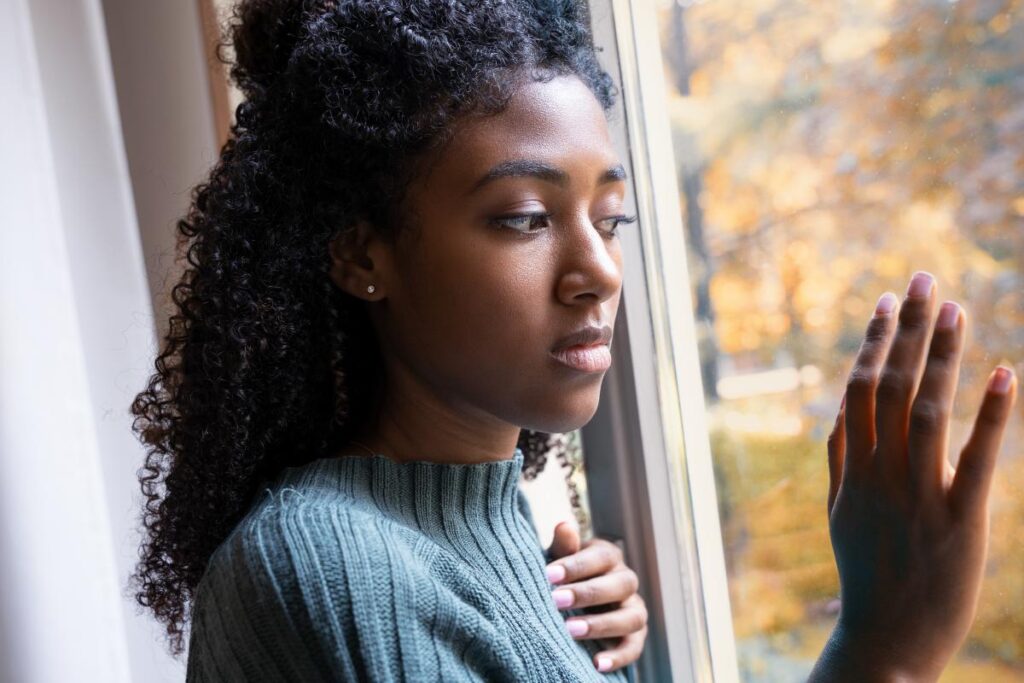Depression is a debilitating mental health condition that affects millions of people all over the world. There are several different types, including situational and clinical depression. In terms of situational vs. clinical depression, there are similarities and differences between the two. Proper diagnosis and treatment are crucial to long-term recovery.
At Promises Behavioral Health, we provide comprehensive treatment tailored to each individual’s needs. Using evidence-based approaches, our clinicians strive to create an environment of healing and hope for those dealing with depression. Learn more about how our outpatient and inpatient depression treatment can help you by calling 844.875.5609 today.
What Is Situational Depression?
Situational depression occurs following a difficult or stressful life event. This type of depression can come on suddenly and vary in intensity, depending on the circumstances. Common causes include:
- Death of a loved one
- Divorce
- Job loss
- Illness or injury
- Financial difficulty
- Significant life changes
Symptoms range from mild to severe and can accompany other physical and emotional issues. Common signs of situational depression include:
- Fatigue
- Irritability
- Insomnia
- Hopelessness
- Decreased appetite or overeating
Situational depression can also manifest through persistent negative thinking patterns, such as feeling overwhelmed by events outside one’s control or dwelling on guilt or shame. While this type of depression usually fades over time, it is vital for those affected to seek help to prevent further mental health deterioration.
How to Treat Situational Depression
Treatment for situational depression typically involves psychotherapy, medication, lifestyle modifications, and self-care activities.
Psychotherapy is an essential part of treating situational depression. It enables individuals to process their emotions and better manage their responses to challenging life events. Cognitive-behavioral therapy (CBT) is one of the most commonly used forms of psychotherapy for treating situational depression. CBT helps individuals identify negative patterns of thinking and behaviors that may contribute to their depressive symptoms and teaches them strategies for dealing with stressful situations more effectively.
In addition, medications can play a role in treating situational depression. Commonly prescribed antidepressants include selective serotonin reuptake inhibitors (SSRIs), serotonin-norepinephrine reuptake inhibitors (SNRIs), and tricyclic antidepressants (TCAs). All have been found effective in treating mild to moderate cases of depression.
Lifestyle modifications are also crucial in managing situational depression because they enable people to cope more easily with stressors. These may include getting enough sleep, exercising regularly, eating healthy foods, having positive social interactions, and setting attainable goals.
What Is Clinical Depression?
Clinical depression, also known as major depressive disorder, is characterized by extended periods of low mood, decreased interest in activities once enjoyed, and a lack of energy. It affects how people feel, think, and act.
Symptoms can vary from person to person but may include:
- Persistent feelings of sadness or emptiness
- Fatigue
- Difficulty concentrating and making decisions
- Insomnia or sleeping too much
- Overeating or loss of appetite
- Anxiety
- Restlessness
- Thoughts of suicide or death
- Physical aches and pains without an apparent cause
Clinical depression is more than just feeling bad on occasion. It interferes with one’s ability to function in everyday situations. Clinical depression can last for weeks, months, or even years if left untreated. While the exact cause is unknown, hypothyroidism, brain chemistry imbalances, traumatic events, substance use, and family history may be contributing factors.
Treating Clinical Depression
Clinical depression treatment depends on the severity and underlying cause. Psychotherapy can be effective for mild to moderate cases.
Cognitive-behavioral therapy (CBT) is a type of psychotherapy that focuses on recognizing unhealthy patterns of thinking and behavior, then replacing them with healthier alternatives. Interpersonal therapy focuses on improving communication and relationships between family members or significant others to improve mood. Problem-solving therapy involves identifying problems that may contribute to depression and developing strategies for overcoming them.
In more severe cases of clinical depression, doctors may prescribe medication. Antidepressants work by influencing certain neurotransmitters in the brain that are responsible for regulating mood. However, it’s important to note that medicine alone will not cure clinical depression; those who struggle with depression should take the medication in conjunction with psychotherapy for optimal results.
Get Depression Treatment at Promises
When it comes to situational depression vs. clinical depression, the need for treatment is universal. At Promises Behavioral Health, we provide a variety of therapies to help people with depression experience relief from symptoms and lead more fulfilling lives. We can tailor a treatment program to your specific needs and guide you every step of the way.
At Promises, we strive to provide compassionate care while helping individuals build the skills needed for long-term recovery. We offer outpatient and inpatient depression treatment to help clients live fuller lives. Complete our web form, or call us at 844.875.5609 today to learn more about situational vs. clinical depression and get on the path to recovery.

